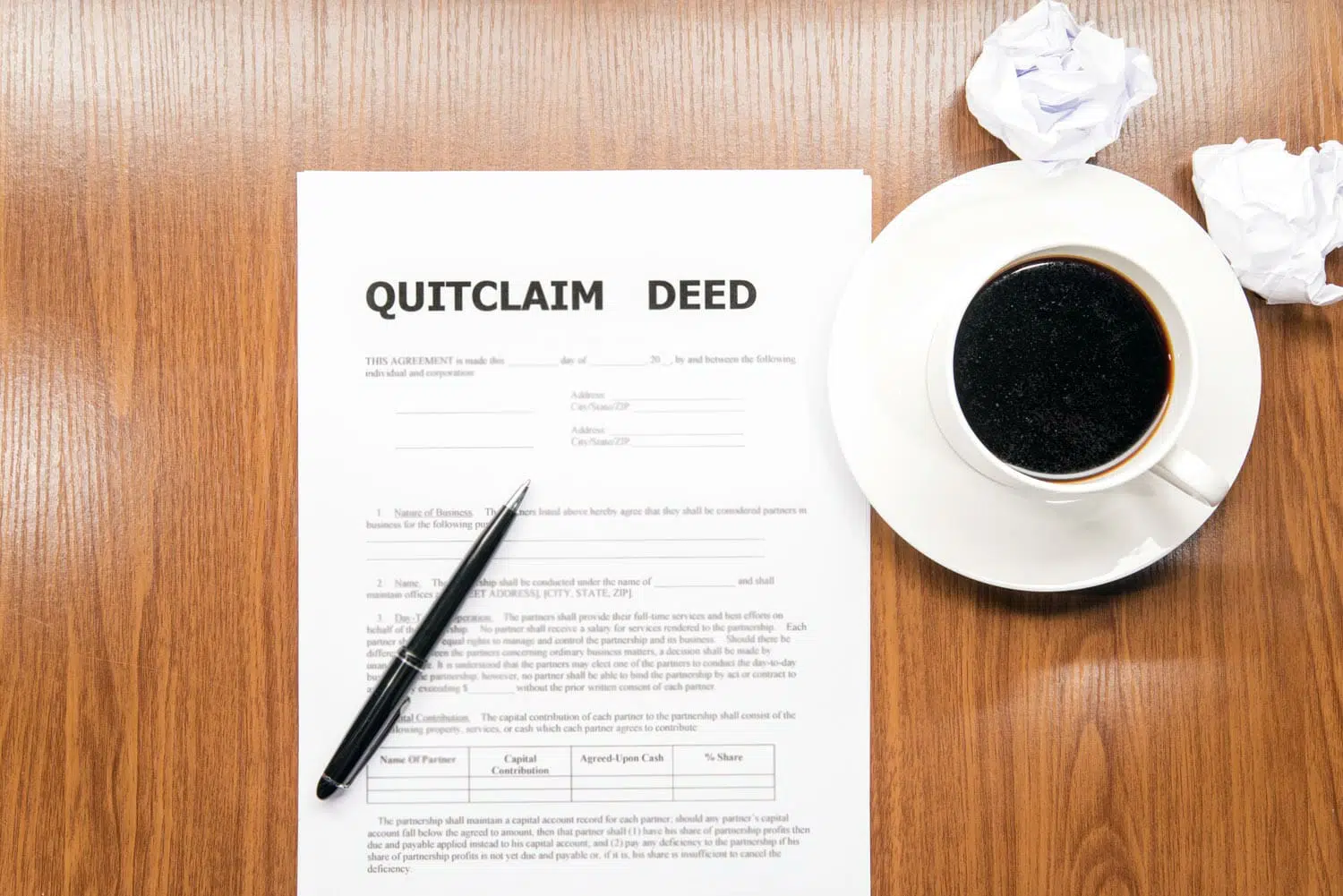George C. Parker had an interesting, if illegal, livelihood. Twice a week for some thirty years, he sold the Brooklyn Bridge to unsuspecting victims, according to the New York Daily News1. He also sold people Madison Square Garden and the Statue of Liberty2. We suppose, if you bargained well, he would have sold you all three prime properties in a package deal. In real estate, they always say Caveat Emptor! (Buyer Beware!) Real estate transactions are always tricky. They become even more so when family members are involved, which is why the quit claim deed exists.
How a Quit Claim Deed Works
In most real estate transactions, the two parties know each other only because of the property changing hands; you don’t trust them and they don’t trust you. Not to be rude; it is just business. Any deeds passing from one owner to the next come with various warranties.
If a problem with the title crops up, the buyer is not stuck; the seller warrants, or guarantees, that no counterclaim will arise and the property transfer will be valid.
Suppose you do know the buyer. Suppose, in divorce, you want to turn your property over to your wife. Then you may take advantage of a quitclaim (or quit claim) deed, which has far fewer legal protections. The buyer needs fewer legal protections (and their associated costs) because she knows you, the seller.
George Parker was selling quitclaim deeds to recent arrivals to New York City. In a quitclaim deed, the buyer gets only what the seller had, which could mean many things:
- Nothing
- A share of the property, with other interested parties (like a bank) having shares, too
- The whole kit and kaboodle
As a recent column in The Huffington Post explains in layperson’s terms, a quitclaim deed is unlike other real estate transaction deeds, such as grant deeds and bargain and sale deeds. It offers the fewest legal protections but is handy for family transactions, correcting title errors, and a few other real estate ventures.
Why Use a Quitclaim Deed?
Suppose you and your wife are divorcing, and you both live in a home you inherited from your parents. You have the title to the house and land and wish to transfer it to your wife so she and your children can continue to live in the family home. You could use a quitclaim deed to transfer your ownership to her, with a minimum of fuss and red tape.
If, later, she discovers your parents did not have rightful ownership when they transferred it to you, your “claim” was invalid and so is hers. She enjoys or suffers the same fate you would have if you had kept the deed for yourself.
A quit claim deed offers the buyer the possibility of taking all rights and ownership from the seller if the seller has any such rights and ownership. If the seller has no rights and ownership, neither does the buyer.
Sounds risky, doesn’t it? It is, but it has its uses in family and neighborly transactions.
Reasons for Using a Quit Claim Deed
Virginia couples can consider using a quit claim deed for several reasons:
- To transfer title for the shared marital home wholly to the other spouse
- To give a home to a child without being liable for any problems (home, property lines, water) that may arise
- To transfer property title from an individual to a corporation
- To clarify a corrected or newly surveyed property line between neighbors
- To clear up misspellings or other errors of fact in the title
A quit claim deed crosses several legal boundaries, since it can be instrumental in family law matters like property settlement, but is also real estate law. If you and your spouse are considering a quit claim deed for your property settlement, your divorce lawyer should oversee the correct wording, signing, notarizing and processing of the deed.
If, long before you two contemplate divorce, you want to sell one of your homes to your adult child, or you are in a property line dispute with a neighbor, you probably should use a real estate attorney.
The Advantages of a Quit Claim Deed
Suppose in divorce you both want to keep the home in the family, for the sake of your children. Neither of you has the money to buy out the other. A quit claim deed can get your name off the title and make her wholly responsible for the property (including insurance and taxes), leaving you free and clear.
A quit claim deed does not affect your mortgage. If you both signed the mortgage papers, you are both still financially responsible for the home. To get your name off the mortgage, ask the lender to sign a release, or ask your ex-wife (now the owner of the property) to refinance it in her name exclusively.
Call Our Property Division Lawyers for Men
In divorce, The Firm For Men can help you with real estate issues like quit claim deeds and property settlement agreements. When you call 757-383-9184, or when you contact us online, we are here to help you, Virginia’s men, preserve and defend your rights.
1. http://www.nydailynews.com/new-york/brooklyn/brooklyn-bridge-brings-gullible-article-1.330399
2. https://curiosity.com/topics/americas-greatest-conman-sold-the-brooklyn-bridge-twice-a-week-for-years-curiosity/

